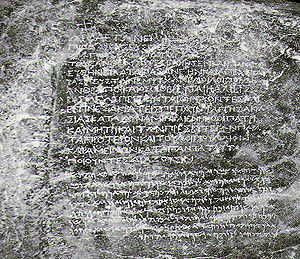
So I hear from commenters that a new foray into demolishing mythicism has been launched by James McGrath with yet one more account of the “criterion of embarrassment”. The curious — yet tedious — thing about this is that while McGrath in particular has faulted mythicists for (supposedly) failing to engage with the scholarship on the historical Jesus, he himself, and some of the other more strident critics of mythicism, have notably failed to engage with the mythicist responses to those scholarly arguments.
James McGrath once wrote:
I have not yet seen . . . . a mythicist who engages a scholar like Sanders point by point and argues the case for drawing a different conclusion.
So when I proceeded to engage E. P. Sanders himself “point by point’ — and one of those points was Sanders’ argument for the historicity of the baptism of Jesus — I was disappointed that there was no response from McGrath. But he can no longer say that he has not yet seen a mythicist who engages a scholar like Sanders point by point and argues the case for drawing a different conclusion. I still await an opponent of mythicism to engage with the argument for the non-historicity of the narrative of the baptism of Jesus that I made in the following posts:
Engaging Sanders Point by Point: John the Baptist
Baptism of Jesus is . . . entirely creative literature
There are many possible reasons why McGrath did not respond to these. But what is not clear is why he would still use the criterion of embarrassment, with the baptism of Jesus as a principle case-study, as if no mythicist argument had ever been mounted against it. Why simply repeat the same argument that mythicists have long since responded to and found wanting? Continue reading “Embarrassing failure of the criterion of embarrassment”



 James McGrath has given Dale C. Allison’s latest book, Constructing Jesus: Memory, Imagination and History, a bit of a bad press in his recent review of it. He famously wrote that Allison explains how a historian can learn the true sense of what a historical person was about through studying fictional material about that person. (See
James McGrath has given Dale C. Allison’s latest book, Constructing Jesus: Memory, Imagination and History, a bit of a bad press in his recent review of it. He famously wrote that Allison explains how a historian can learn the true sense of what a historical person was about through studying fictional material about that person. (See 


 Maurice Casey
Maurice Casey The stated purpose of Maurice Casey’s book
The stated purpose of Maurice Casey’s book 